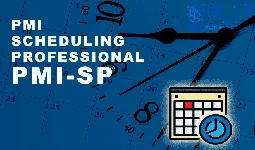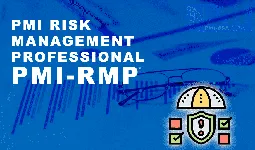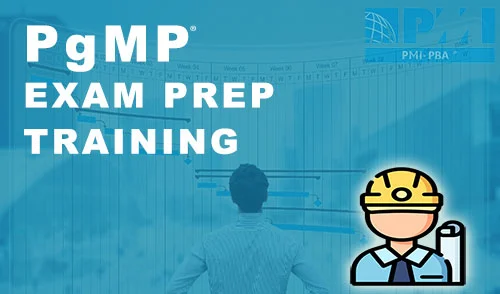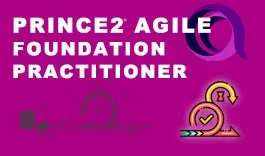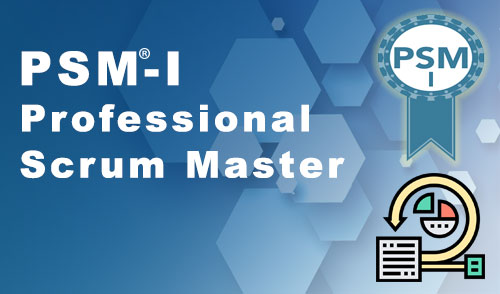Agile Coaching Guide - Best Skills for Agile Coaches
-
 By Nandini
By Nandini - Published on May 24 2023

Table of Contents
- Introduction
- What Does Agile Coaching Mean?
- Agile Coaching Skills for Agile Coaches
- Things You Need To Know About the Agile Coach's Role
- Phases of Agile Coaching
- Elements of Agile Coaching
- Benefits of Agile Coaching for Teams
- How to Become an Agile Coach?
- Agile Coaching Skills: How to Become an Expert Business Agile Coach?
- Steps to Become Scrum Coach
- Types of Agile Coaches
- Reasons for Hiring an Agile Certified Coach
- Role of Agile Coaching
- Conclusion
Introduction
Agile Coaching is crucial to agile software development and extends beyond traditional agile training boundaries. Understanding and mastering the different aspects of the role of the agile coach, the basic concepts of Agile Coaching, and getting coached by experts are essential if you are to become an effective agile coach.
The PMI Agile Certified Practitioner (PMI-ACP) credential is a complete portfolio of skills, knowledge, and experience that must be demonstrated to obtain the designation.
This document describes best practises for assessments, guidelines for earning the PMI-ACP credential, and resources that are helpful in one's education and career development.
For further reading, see Agile Project Management.
What Does Agile Coaching Mean?
Agile Coaching is a type of coaching that focuses on helping people adopt and successfully use agile methods. Agile Coaching helps individuals better understand and apply agile methodologies' principles and practices in their work environments.
Agile Coaching is a type of coaching that helps individuals and teams adopt and successfully use agile methods. Agile Coaching is focused on assisting people to become more effective and efficient in their work, using the principles of agile software development.
Agile Coaching Skills for Agile Coaches
Agile Coaching skills are essential for coaches who work with agile teams. Agile coaching is a process that helps teams becomes more effective and efficient by allowing them to identify and resolve problems quickly.
The following are some critical agile coaching skills:

1) Communication and collaboration: As a coach, it is essential to effectively communicate with your team members and collaborate with them to resolve issues.
2) Facilitation: A certified agile coach must facilitate the team's discussions and help them reach a decision consensus.
3) Problem-solving: As a coach, to solve problems quickly and efficiently to move forward.
4) Team development: As a coach, you need to help the team grow and develop their skills to become more valuable in their roles.
Things You Need To Know About the Agile Coach's Role
Agile Coaching can help individuals achieve the following goals:
1) Increase their knowledge and understanding of agile methodologies.
2) Improve their ability to work effectively within an agile environment.
3) Address issues that have prevented them from successfully adopting or using agile methods in the past.
4) Facilitate agile coaching team collaboration and communication around agile methodologies.
5) Increase their ability to manage change effectively.
6) Enhance their problem-solving, decision-making, and critical thinking skills.
Phases of Agile Coaching
Agile Certified Coaches help individuals and teams achieve their goals by providing support during the following phases of the agile process:

1) Planning: Coaches help individuals and teams develop a clear understanding of their goals and objectives and the resources required to achieve them.
2) Building: Coaches help individuals and teams create a plan that meets their goals and objectives, using story mapping and user stories.
3) Testing: Coaches help individuals and teams test their plans and products using user feedback surveys or beta testing methods.
4) Continuous Improvement: Coaches help individuals and teams identify areas in which they can improve their work, make changes, and measure the results.
Elements of Agile Coaching
Agile Coaching typically includes the following elements:
1) Understanding the goals of agile
2) Assessing current performance
3) Identifying areas where change is needed
4) Facilitating team collaboration and communication
5) Providing support during the implementation
6) Monitoring and adapting the process as needed
7) Celebrating successes along the way
8) Sharing best practises with others
Benefits of Agile Coaching for Teams
Agile Coaching is a process that helps agile teams improve their agility and performance. It can help organisations achieve several benefits, including:
- Increased speed and efficiency in decision-making.
- Improved communication and collaboration.
- Improved problem-solving skills.
- Greater innovation and creativity.
You can begin your Agile Career with a PMI Certified Agile Practitioner Training Course.
An agile enterprise coach is a professional who helps companies adopt agile methods and achieve better results. They provide coaching, training, and support to help organisations move from traditional project management to a more flexible and responsive approach that can help them meet their business goals faster.
The benefits of having an agile enterprise coach include:
- Reduced risk: With an agile enterprise coach on board, you can ensure that your projects will be delivered on time and within budget.
- Improved communication: The certified agile coach helps ensure that all stakeholders are kept up-to-date with the project's progress and resolve conflicts quickly and efficiently.
- Increased agility: Using agile methods, your organisation can reduce the time it takes to develop new products or services, making it more competitive in the marketplace.
Being a better agile enterprise coach means providing the right level of support and guidance to your team members. This guide will discuss six strategies that can help you achieve this goal.
Understand Your Team's Needs:
It is essential to understand what your team members need to succeed. It means grasping their strengths and weaknesses and their development goals.
Set Clear Expectations:
It is essential to set clear expectations from the beginning so that everyone knows what they are expected to do and how they are expected to do it. It will help them stay focused and motivated.
Be Patient and Encouraging:
It is important not to get frustrated with team members when things don't go as planned. Instead, be patient and encourage them to keep trying until they succeed.
Help Them Build Confidence:
When team members feel confident about their abilities, they are more likely to take risks and try new things. Help them build confidence by providing specific, objective, and helpful feedback rather than judgmental or negative feedback.
Stay Updated on Changes:
It is important to stay up-to-date on changes so that you can provide the best possible assistance for your team members. It includes learning about new technologies and trends so that you can help your team members adapt as needed.
How to Become an Agile Coach?
To be an agile coach, you must have a strong background in coaching and training. Some of the key skills are:
1) Work with different teams and individuals to help them achieve their goals.
2) A certified agile coach should have experience working with Scrum, Kanban, and other agile frameworks. Additionally, you should be skilled at creating roadmaps and conducting retrospectives.
3) To undergo certification courses such as the Agile Coach Trainer Certification from the Agile Alliance.
4) Have strong communication and relationship skills. A certified agile coach needs to work well under pressure and have a good sense of problem-solving.
5) As an agile coach, you would work with teams of developers and designers to help them improve their skills in agile development.
The role of a certified agile coach is to identify and resolve problems quickly so that teams can continue working on their projects without interruption.
You would also offer guidance and support during the early stages of a project so that it could reach its full potential. Finally, a certified agile coach would be available to answer any questions your clients may have about agile development.
Agile Coaching Skills: How to Become an Expert Business Agile Coach?
The best way to become an expert agile business coach depends on your experience and skills. However, some things a certified Agile coach may want to consider include:
1) Understanding how business agility works.
2) Having experience coaching teams using agile methodologies.
3) Ability to communicate with team members effectively.
4) Having a good understanding of the principles of lean startup methodology.
5) The ability to provide constructive feedback and direction
6) Have a strong understanding of software development methodologies such as Scrum and Kanban.
7) To work effectively with teams from different departments and cultures.
8) Have a proven track record of coaching businesses through agile transformations.
A PMI-ACP Certified Scrum Master is a highly skilled individual who has the knowledge and experience to help organisations achieve successful Scrum implementations.
Reach out to us if you are looking for a Professional Scrum Master Certification Training Course.
There are many reasons why it's worth your time and money to become a PMI-ACP Certified Scrum Master. Here are six of the most important:
1) A PMI-ACP Certified Agile Scrum Master coach can help you improve your team's ability to work together harmoniously and effectively.
2) A PMI-ACP Certified Scrum Master Agile Coach can help you overcome any challenges that may arise during your Scrum implementation process.
3) A PMI-ACP Certified Scrum Master can provide guidance and support when understanding and applying the Scrum framework.
4) A PMI-ACP Certified Scrum Master can provide you with the skills necessary to lead a successful project involving the use of the Scrum framework.
5) A PMI-ACP Certified Scrum Master can provide you with the knowledge and understanding needed to successfully manage an organization's scrum development, management, and adoption efforts.
The benefits of having a PMI-ACP Certified Scrum Master on your team include:
- Increased efficiency and effectiveness in delivering products using the Scrum methodology.
- Reduced risk of project failure due to misunderstandings or noncompliance with Scrum guidelines.
- Increased trust and credibility within the team and with clients and stakeholders.
- Improved communication between team members, which leads to improved collaboration and productivity.
Steps to Become Scrum Coach
Here are six simple steps to becoming an effective PMI-ACP Agile Certified Coach:
1) Agile Transformation coaches help teams transition from an existing process to an agile process.
2) Implementation coaches help teams implement agile methodologies.
3) Scrum masters are responsible for facilitating the Scrum team and ensuring that the product backlog is managed effectively.
4) Create a personal agile coaching plan and follow it strictly.
5) Identify and address individual agile coaching challenges with your clients.
6) Use tools like Scrum boards, retrospectives, and capacity planning to help your clients achieve their goals.
7) Celebrate your successes along the way.
Types of Agile Coaches
Agile coaches are responsible for helping teams adopt agile methodologies. There are three main types of agile coaches:
Agile coaches are a type of consultant who helps teams to adopt agile methodologies. There are many types of agile coaches, but they share the same goal: to help teams be more effective and efficient.
Scrum master
The most common type of agile coach is the scrum master. A scrum master helps a team create and manage a scrum project, developing software using the agile methodology.
Test Coach
Another type of agile coach is the Test Coach. A Test Coach helps teams test their software using the agile methodology. Test Coaches also help teams design and execute tests that verify that the software meets specific requirements.
Agile Coach Specialist
Some certified agile coach specializes in other aspects of agile development, such as product owner coaching or technical coaching. These coaches can help teams create product backlogs and set up automated testing environments through agile coaching.
Agile Coaching: Why You Should Get One & What Kinds of Companies Use Them?
Agile coaches are a valuable asset to any business. They can help you achieve your goals and objectives faster and with less stress.
Various companies use Agile coaching, including software development companies, marketing agencies, and law firms.
Agile coaching is a type of coaching that helps teams achieve their goals by using a combination of methods, such as:
- Sprint planning: This is a process where the coach helps the team create a plan for completing specific tasks within a set timeframe.
- Retrospectives: These sessions help the team learn from their past successes and failures to improve their performance in the future.
- Integrated project management: This approach integrates all aspects of project management into one system so that teams can track progress and make changes as needed.
Reasons for Hiring an Agile Certified Coach
There are many reasons why you should hire an agile coach:
- You may be experiencing challenges that prevent you from delivering on your promises or meeting customer expectations.
- You may need to shift gears and change your current process to meet the market's demands.
- You may be overwhelmed by all the changes happening within your organization at once.
- You may feel like you're swimming against the tide, and that things are not going as planned.
When it comes to choosing an agile coach, there are a few things that you should keep in mind:
1) A certified agile coach should have experience working with agile methods.
2) The certified agile coach should be able to provide clear and concise feedback so that you can understand what's working well and where upgrades can be made.
3) The coach should work collaboratively with other team members to ensure everyone is on the same page.
Why are Agile Coaches Necessary in Today's World of Software Development?
Agile coaches are necessary in today's world of software development because they help teams adopt agile methodologies and practices.
1) Agile methodologies and practices emphasize working iteratively, which means that teams work together to deliver features or changes as quickly as possible by breaking the project into small, manageable tasks.
2) Agile coaches help teams adhere to these principles by providing guidance and feedback on how well the team is progressing, helping them identify and resolve conflicts, and providing support during the implementation process.
3) In addition to coaching, agile coaches also play an essential role in facilitating communication within a team. They help team members understand each other's roles and responsibilities, which allows them to work more effectively together.
4) Agile coaching is the support that helps teams improve their software development process. It is designed to help teams become more efficient and effective by providing guidance and feedback on improving their work.
Role of Agile Coaching
The role of agile coaching in companies can be divided into two main areas:
1) Help teams achieve the benefits of agile methodologies, such as speed, flexibility, and communication.
2) Facilitating team collaboration and communication.
Agile coaching can help teams achieve the following benefits:
- Improved speed and quality of software development.
- Increased team productivity and agility.
- Reduced risk of project failure due to a lack of clarity or misunderstanding about the software development process.
Conclusion
A certified agile coach has undergone a rigorous training program to develop the skills required to teach and coach agile teams. These skills include coaching, enabling, and facilitation.
Agile coaches need to have the ability to help their team members learn how to apply agile principles in their work and how to make better decisions with less risk and more value.
If you are willing to become a certified agile coach, please fill out our contact form below for more information about our training programs!
We are Sprintzeal, an internationally recognized ATO (Accredited Training Organization) providing quality professional certification training. Enroll in our agile training program and get certified. Use the chat option available on this page to get full details about the course.
Subscribe to our Newsletters
Popular Programs
PSM® - Professional Scrum Master Certification
Live Virtual Training
- 4.1 (75 + Ratings)
- 69k + Learners
Trending Posts
Data Processing - A Beginner's Guide
Last updated on Aug 18 2022
Agile Prioritization Techniques Explained
Last updated on May 9 2023
How to Write an Executive Summary for a Business Plan?
Last updated on Feb 13 2025
What is a Product Owner - Role, Objectives and Importance Explained
Last updated on Oct 17 2023
Guide to Becoming a Certified Scrum Master in 2024
Last updated on Feb 7 2024
Scrum Workflow - A Step by Step Guide
Last updated on Sep 29 2022
Categories
- Agile Management 54
- AI and Machine Learning 42
- Big Data 53
- Business Management 51
- Cloud Computing 44
- Digital Marketing 56
- Information Security 8
- IT Hardware and Networking 17
- IT Security 103
- IT Service Management 29
- Leadership and Management 1
- Microsoft Program 2
- Other 43
- Programming Language 31
- Project Management 162
- Quality Management 75
- Risk Management 8
- Workplace Skill Building 2
Trending Now
List Of Traits An Effective Agile Scrum Master Must Possess
ArticleDevOps Vs Agile Differences Explained
ArticleDevops Tools Usage, and Benefits of Development Operations & VSTS
ArticleAgile Scrum Methodology - Benefits, Framework and Activities Explained
ArticleGuide to Agile Project Management 2024
Article10 best practices for effective DevOps in 2024
ArticleGuide to Becoming a Certified Scrum Master in 2024
ArticleWhy Should You Consider Getting a Scrum Master Certification?
ArticleCSM vs CSPO: Which Certification is Right for You?
ArticleAgile Manifesto - Principles, Values and Benefits
ArticleAgile Methodology Explained in Detail
ArticleAgile Project Management Explained
ArticleEssential Tools for Agile Project Management 2024
ArticleEverything about Scrum Methodology
ArticleScrum Workflow - A Step by Step Guide
ArticleLatest Agile Interview Questions and Answers To Look For In 2024
ArticleScrum Interview Questions and Answers 2024
ArticleTop Scrum Master Responsibilities 2024 (Updated)
ArticleProduct Life Cycle in Marketing: Essential Strategies for Product’s Success
ArticleDevOps Engineer Interview Questions - Best of 2024
ArticleDevOps Engineer - Career path, Job scope, and Certifications
ArticleBusiness Agility Guide - Importance, Benefits and Tips
ArticleScrum vs Safe – Differences Explained
ArticleCSM vs. PSM - Which Scrum Certification is Better?
ArticleSAFe Implementation Roadmap Guide
ArticleAgile Release Plan Guide
ArticleAgile Environment Guide
ArticleAgile Principles Guide
ArticleSAFe Certifications List - Best of 2024
ArticleAgile Prioritization Techniques Explained
ArticleScrum Ceremonies Guide
ArticleProduct Owner Certifications List
ArticleScrum of Scrums Guide
ArticleWhat is DevSecOps and its Importance
ArticleData Processing - A Beginner's Guide
ArticleDevOps Career Guide 2024
ArticleStakeholder Engagement Levels Guide
ArticleScrum Master Career Path Explained
ArticleScrum Career Path Explained
ArticleTop Git Interview Questions and Answers [Updated 2024]
ArticleA guide to Agility in cloud computing
ebookProduct Roadmap: An Ultimate Guide to Successful Planning and Implementation
ArticleDMAIC Methodology - The Ultimate Guide
ArticleProduct Life Cycle Strategies: Key to Maximizing Product Efficiency
ArticleScrum Master Salary Trends in 2024
ArticleProduct Life Cycle Model: A Guide to Understanding Your Product's Success
ArticleWhat is a Product Owner - Role, Objectives and Importance Explained
ArticleSuccessful Product Strategies for Introduction Stage of Product Life Cycle
ArticleUnlocking Career Opportunities in Product Management: Your Roadmap to Success
ArticleSaturation Stage of Product Life Cycle: Complete Guide
ArticleCutting-Edge Technology of Google Cloud
ArticleHow to Write an Executive Summary for a Business Plan?
ArticleImportance of Procurement Management Software in Modern Business
Article
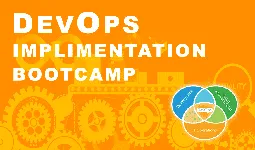
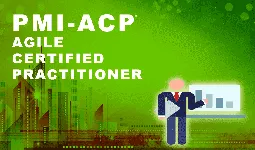
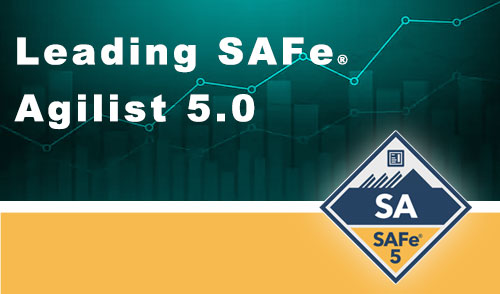

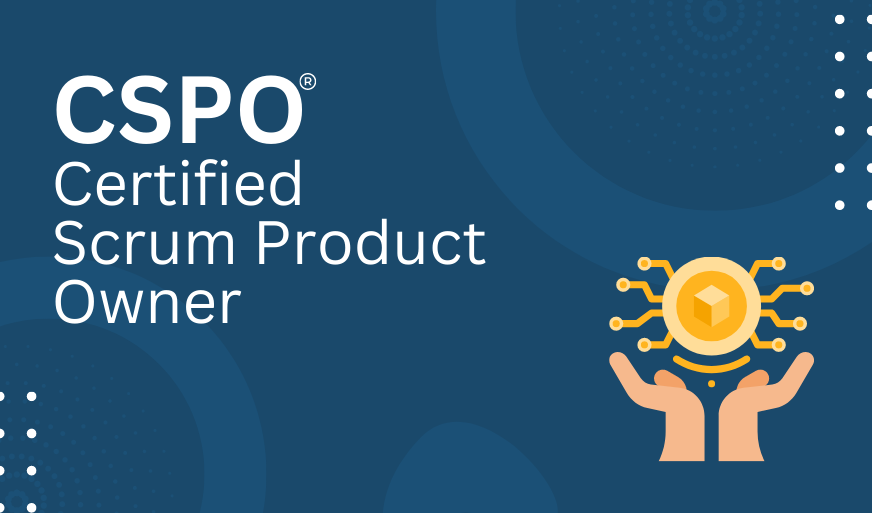
.webp)
